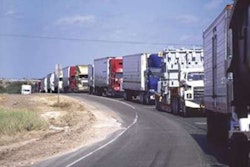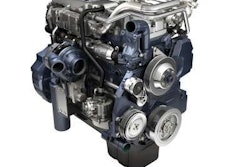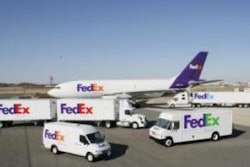A California congressman has joined a number of national leadership groups in a groundswell of opposition to a campaign by the Teamsters union and allied politicians to change longstanding federal transportation law, the American Trucking Associations says. The union is seeking taxpayer-funded help in organizing port drayage truck drivers by banning independent owner-operators from ports, according to ATA; the Teamsters hope to attain this by pushing Congress to change the Federal Aviation Administration Authorization Act (FAAAA), which prevents state and local jurisdictions from regulating interstate trucking and commerce.
U.S. Rep. Gary Miller (R-Calif.) last week released a “Dear Colleague” letter opposing the Teamster effort. “Compliance with air quality standards should be determined on a truck-by-truck basis without regard to the employee or ownership status of the driver of that truck,” Miller’s letter said.
“Our nation’s businesses depend on an efficient, interconnected transportation network that moves commerce fluidly from U.S. marine ports to the network of surface transportation systems of roads and rails,” says Bill Graves, ATA president and chief executive officer. “Federal transportation law protects businesses from a patchwork of local and state regulations that would stifle our nation’s economy.”
“We believe that protecting our environment by reducing truck emissions is an important mission that we must undertake, and it is easy to see that our nation’s ports play a vital role in that effort,” Miller’s letter said. “Industry stakeholders, including many small businesses, have shown that they are taking a proactive approach to meeting environmental goals as they have made significant investments in clean equipment. It is important that we do not get distracted by unnecessary provisions and mandates that are not related to environmental goals and could have long-term negative consequences on interstate commerce.”
The U.S. Chamber of Commerce and the National Association of Manufacturers also oppose any change to the FAAAA. In their letters circulated on Capitol Hill, the organizations say ports already have the ability implement environmental programs that clean the air. “These (proposed changes) are specifically designed to eliminate competition from small independent businesses in favor of companies that the Teamsters believe could be more easily organized,” the letter said.
The Clean and Sustainable Transportation Coalition – 31 groups that represent exporters, importers and the logistics industries and service providers that support them – also opposes the union effort to change the FAAAA. “These changes, if enacted, could unfairly force out of the industry many hard-working small businesses responsible for moving much of the nation’s international commerce,” said a letter signed by the Coalition.











